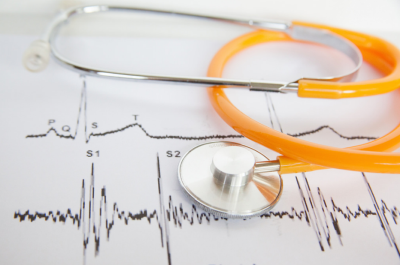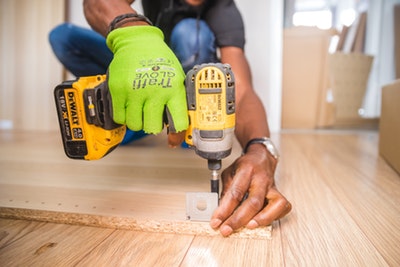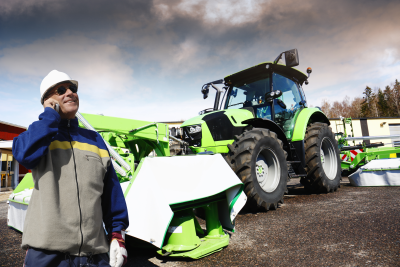The 10 Top Elements Every Doctor’s Office Should Have
If you are a qualified doctor thinking of opening up surgery in your local area this year, you likely know that there are a lot of costs and licensing you’ll need to go through before you can finally settle into your new practice.
One of the things that will take some time to sort out once you do have the permits you need is the office itself.
There’s also the question of the many software and external processes that must be implemented and used within the practice once the office space has been established.
This can include internal ERP or ERM systems that can boost the efficiency and administrative ability of your practice, but it can also encompass credentialing services too.
These programs will handle all the necessary application requirements and determine whether the applicants have the qualifications and permissions to practice in your clinic.
Aside from this, here are some important equipment you’ll want to have in your office from day one.
#1 A great computer
The computer you use for your doctor’s office will greatly affect your productivity. It will mean that you can work on more things simultaneously and grab your patients’ information within seconds when they visit you in the office.
Think about looking for free software for data collection to make storing sensitive medical records more convenient and secure.
#2 An eye test sheet
Everyone at some point in their childhood or adulthood will need a simple eye test to see whether they need to be referred to an optician for glasses.
You only need a small wall section for this test and can buy eye test sheets online to add to your office. This will be a simple 5-minute examination for any patient who comes in and a convenient way to see how good their eyesight is.
#3 Asthma information and peak flow meter
Many small children will develop a form of asthma during their early years. However, it can affect people of all ages and vary in severity.
It is a common chronic illness; therefore, it will be helpful for you to have information on hand in the form of diagrams of the windpipe and flyers for different inhalers.
A peak flow meter is a handy device allowing patients to check their airflow within seconds. It can help you determine how severe their respiratory problems are, and it can help you to refer them to the right medicine.
#4 Ear testing probe
When patients come into your office with a cold or for a general checkup, it is always handy to have an ear testing probe with a light on the end so that you can look out for congestion in the ears and see if the eyes are healthy, too.
It can help you prescribe the right medicine within a few minutes, making the job much easier for you and the patient.
#5 Ultrasound machine
If you are a pillar in your community, there will be times throughout your career when women come to see you and find out they are with a child.
Although most small GP surgeries don’t deal with ultrasounds, you could be the one in your local area who does.
Having an ultrasound machine in your surgery will allow you to comfort the expecting mother and share this wonderful moment with them as they sees their baby for the first time. What could be better than that?
#6 An ECG unit
An ECG unit is used to measure an individual’s heart rate and the frequency of the heartbeat and ensure that it is regular.
Suppose someone comes to you worrying that they have a rapid heart rate. In that case, you can use this handy little device to ensure the patient isn’t displaying an irregular heartbeat because this could need extra medical attention.
#7 Blood pressure monitor
A blood pressure monitor is one of the easiest little devices to get hold of, and it is one of those essential items to have in the doctor’s office from day one because you will be using it most of the time when people come in for checkups throughout the year.
A blood pressure monitor is a small and cheap device that you can buy almost anywhere, so it can be one of the first things you buy as you set out to kit your office.
#8 BMI info and scales
When it comes to general health for people of all ages, it can be important as a doctor to give out advice about health and nutrition to keep people fit throughout their lives.
A BMI chart is a must-have in the office as it will allow you to take the height and weight of a patient and then show them the calculation to give them an idea of how healthy they are and what they could improve on in the future.
It is a simple piece of kit that will help many people.
#9 AED for emergencies
Of course, it is rare that you will be faced with an emergency in the office. However, it is always worth being prepared in case an elderly or vulnerable patient collapses and suffers from a cardiac arrest.
A defibrillator is a simple piece of kit that could be the difference between life and death for a patient, and therefore, it is most likely to be the best investment you make for the doctor’s office. Of course, proper defibrillator placement helps save lives, so make sure to place it somewhere easily accessible and where everyone on the premises can find it.
#10 Urine test equipment
There will come times during your career as a doctor when you’ll have to do those nitty-gritty tests, and one of those tests will include urine.
There are so many different things you can test urine for, including pregnancy, sugar levels, vitamin levels, etc. getting yourself a handy testing kit in the surgery will allow you to test urine in the office and get back to your patients immediately with a diagnosis and further treatment ideas.
When it comes to kitting out your doctor’s surgery, it might take some time and effort to source the things you need, but it will be a great way to start your medical practice on a high and find success in your career.
What other things should a doctor’s office have?







